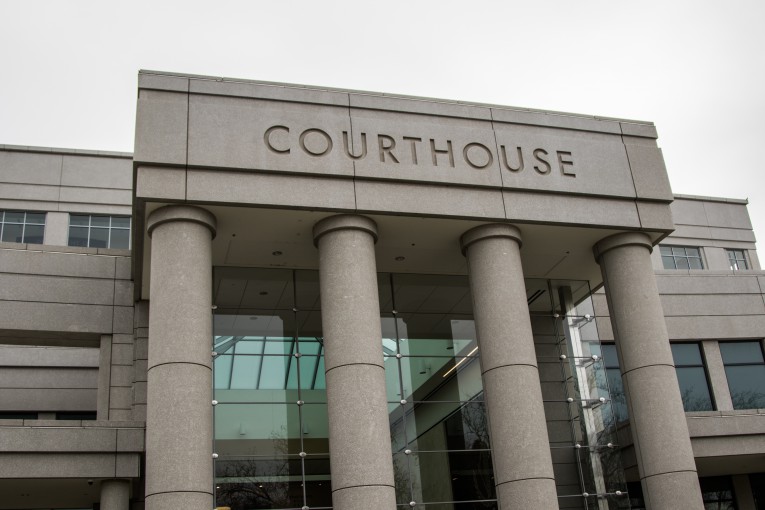
 by Alexandra Quilici
by Alexandra Quilici
Many facets contributed to a whirlwind preliminary hearing for Gustavo Chavez who is filing a Penal Code section 1538.5 motion accusing the police of an illegal search and seizure. Police were directed to Chavez’s vehicle after his daughter called to report him for violent behavior.
While not a part or relevant to the motion, it was learned that Chavez’s daughter was at Home Depot, and after Chavez showed up to see her, she called the police. Apparently, Chavez had threatened to kidnap her.
Police were dispatched to find Chavez, where they learned that Chavez was on probation. The first witness to the case, an Officer Vancoff, verified that he was indeed told Chavez was on probation, and that under his probation policy the police would be able to search and seize his car.
However, Chavez had been off probation for a few months when the incident occurred. Chavez told the officers this, and they called back to dispatch and asked about his probation. Dispatch told the 
officers again that Chavez was still on probation. However, the evidence presented in court proved and verified that Chavez was indeed not on probation, therefore a search and seizure was not within the police’s purview.
Dispatch also told the officer sent to the location that Chavez was “known to have a gun.” When the police approached Chavez, he complied and stepped out of the car. Chavez immediately locked the door behind him, perhaps out of force of habit. Chavez did not know why they were there but “he had an idea.”
Despite the dispatch office wrongly reassuring the police three times that Chavez was on probation, the officer insisted that the dispatch mistake about the probation was a “rare first.” Not knowing the truth, officers then went and searched Chavez’s car, where they found a loaded pistol in the back seat.
The officer stepped down from the stand, and the defendant took the stand. He confirmed that he had been off probation since July of 2016, and the incident took place in October of 2016. He confirmed that he was compliant and maintained a calm demeanor throughout.
Chavez also confirmed that he was confused about the police’s actions because he was given the “all clear” on all counts of his probation. When the People asked a direct question about whether the officer asked Chavez if there were weapons in the car, Chavez’s defense lawyer interjected and advised him not to answer.
The People argued that the nature of the call received was serious enough that the actions of the search and seizure were warranted, particularly because they were under the belief that Chavez was on probation.
Chavez was handcuffed and taken to jail that night. In closing arguments, the defense argued that the officer had no basis to search the car. He also argued that, under the Fourth Amendment, the actions of the officers were unreasonable, and the failure for the officers, dispatch, and more to recognize that Chavez was no longer on probation was a huge mistake.
The People argued, again, that the serious nature of the call warranted the reasonable action of the police.
Judge Paul K. Richardson concluded that the police did what one would expect in this situation. He applied the “good faith” exception created under United States v. Leon and declared that the case would head to trial.
